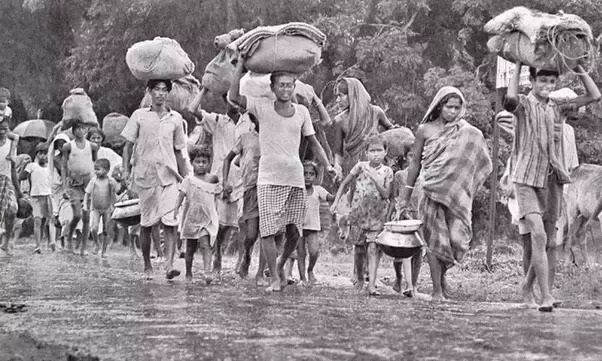“I don’t need people, just the soil.” -General Tikka Khan
If the brutality of Operation Searchlight could be summarised in one sentence, it ought to be this. Today marks the 50th year of one of the most barbaric operations carried out by West Pakistan on the then East Pakistan (now Bangladesh). On 25th March 1971, the Pakistani army launched a crackdown on East Pakistan and started the 1971 Bangladesh Genocide. The genocide remains one of the ugliest and bloodiest massacres since World War II. The mass killings were continued till December when the Mukti Bahini along with the Indian armed forces liberated Bangladesh, forcing roughly around 90,000 Pakistani soldiers to surrender.
Codenamed as “Operation Searchlight”, the ruthless massacre was an attempt by West Pakistan to curb the liberation demanding voices of Bangladesh. The Awami League under the leadership of Bangabandhu Sheikh Mujibur Rahman secured a majority in Pakistan’s General Election of 1970 but was refused power. In January 1971, General Yahya Khan, Zulfiqar Ali Bhutto, and significant military leaders met and decided upon strict military actions. The mobilisation of the Pakistani Army soon began in February. On the night of March 25, hundreds of people were killed, including students and teachers at Dhaka University. The killings were directed towards intellectuals, researchers, artists, and more.
“Kill three million of them and the rest will eat out of our hands,” ordered united Pakistan’s last military ruler, Gen. Yahya Khan, before the start of ‘Operation Searchlight’.
Virtual Global Candlelight Service
The International Crimes Strategy Forum or ICSF has organised a virtual global candlelight service to mark Bangladesh’s National Day of Genocide Commemoration on March 25, which precedes March 26, the Independence Day of Bangladesh. This is a call to Bangladeshis across the world to light a candle or attend the lamp live on Facebook at 12:01 am on 25th March 2021. This is also a significant vigil designed to pressurise international committees and organisations around the globe to recognise the genocide that was launched on the Bengali people of the then East Pakistan in the early hours of 26th March 1971.
The International Crimes Strategy Forum has also requested people to upload photos or videos of candlelight with the hashtags #recognise1971genocide and #RecogniseBangladeshGenocide.
Jalladkhana
Inaugurated in 2007 as ‘Jalladkhana Killing Field’ in Dhaka’s Mirpur area, the place still bears the scars of the massacre of thousands of Bangladeshis. At the memorial, the personal belongings of the victims are kept. It is also a significant way to remember the martyrs. The memorial displays the countless names of the victims and their memoirs. The memorial is a constant reminder of what Bangladesh lost and fought for during the struggle of 1971. In 1999, an excavation carried out by the Liberation War Museum unearthed 70 skulls and 5,392 bones of men, women, and children from the area.

